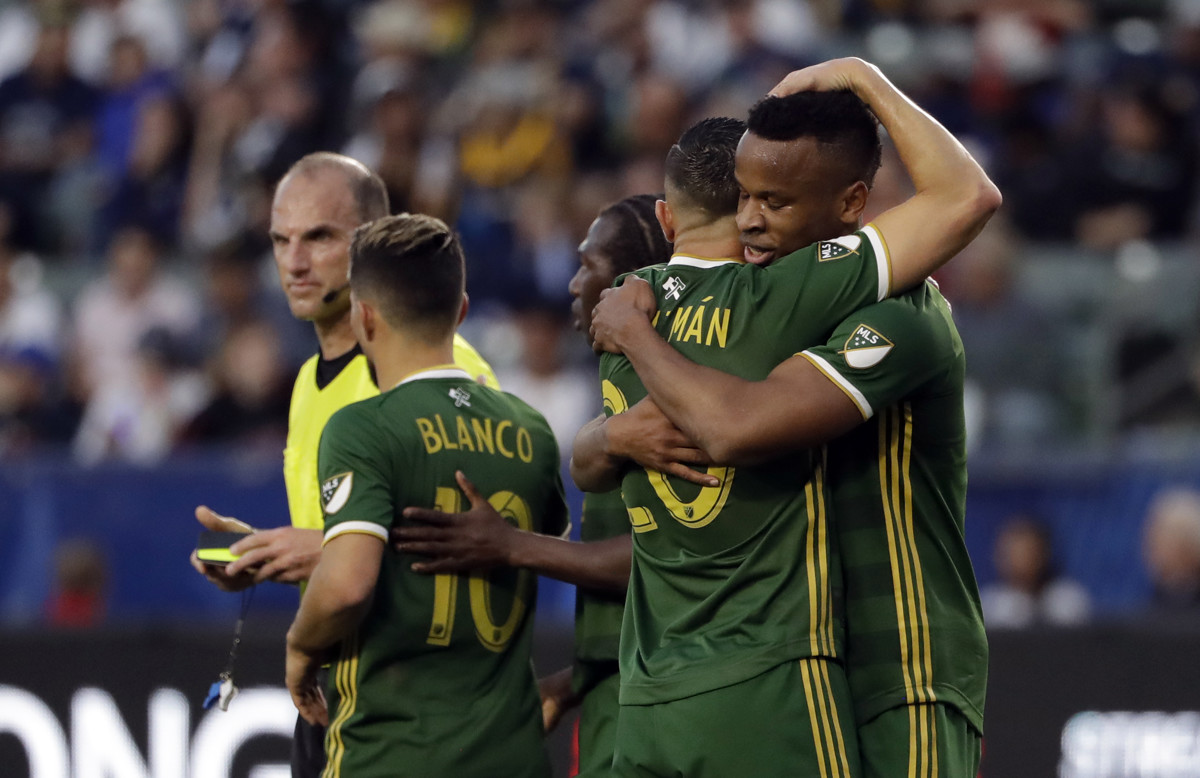
For T.S. Eliot, April was the cruelest month. For Pacific Northwest sports fans, May is. There’s not a football in sight. Portland’s basketball team has amazed, but there’s only so much further it can go, and the prospect of profound disappointment looms. The only professional baseball team for as far as the eye can see, the Mariners, teased us with their hottest start in history only to regress to the mean with alacrity.
But there is another professional sport underway. The rest of the world refers to it as football. But in America, home of the NFL, that would never do. We’ve thus taken to using a centuries-old British colloquialism “soccer” supposedly an abbreviation for “association football.” The Brits are full of cute turns of phrase. Some of them aren’t even fit for print. They’ve been known to refer to soccer as “footie,” which I propose we adopt here in our country. They also call the uniform the “kit” and the cleats the “boots.” The field is not the field but the “pitch.”
Europe is a place that is lousy with soccer teams (“football clubs”). It’s also littered with train tracks, big and small. Trains, streetcars and subways are primary forms of transportation over there. Many people don’t even own cars. If you visit a place like England, Germany, France or Italy, you’re likely to ride a lot of trains and encounter a lot of soccer fans. Sometimes these things even overlap. Happen to be riding a train home after a Saturday night soccer match lets out, and you may be swept up in a wild mob of drunken hooligans. They jump and pound and thrash and sing songs in unison. Sometimes they brawl or engage in other boorish behavior, with opposing fans or with themselves.
The Europeans also have food traditions associated with soccer day. They vary by country and region, of course, but could include things like meat pies or sausage or schnitzel sandwiches. Don’t let anyone tell you there’s not lots of French fries dipped in vats of mayonnaise, because there are. The Brits call French fries “chips” (and potato chips are “crisps”). The Germans are great lovers of soccer and mayonnaise and French fries. Their word for fries is pronounced like the American word, pumice, which is based on the French term for potatoes. In France, of course, they don’t need to call them “French” fries, just fried potatoes, “pommes frites” similar to the way that we don’t need to call them “American hamburgers”since we basically invented the dish.
What similarities does the Pacific Northwest share with some of these places? Quite a bit, actually.
For starters, we’ve got three respectable soccer clubs of our own. In Vancouver the club is called the Whitecaps, named because of both the beautiful geographic formations that rise on the city’s horizon as well as the water movements on its other horizon. In Seattle it’s the Sounders, named after this big, peaceful body of water that salmon and orcas swim through and bald eagles fly over. In Portland, of course, the Timbers stand for the millions and millions of trees that give us life and help us to form our identities as residents of the PNW.
There’s something connecting these three Northwest cities, and it’s made of steel and creosote-treated lumber. Yes, railroads, on which trains travel! There are several lines. The best are the Coast Starlight and the Cascades. Adventures can be had. Matches attended. There’s so much scenery to see and delicious food to sample. Naturally, with all of our waterways, seafood abounds. But this summer there will be berries galore. Come fall, we’ll be awash in wild mushrooms.
The Sounders are set to play the Timbers two times this summer. The Timbers travel to Vancouver for a match in August. The Sounders travel there in late June.
As the days get longer, our languid sunsets stretch out and slow down, the burning ball of fire disappearing ever so slowly behind mixtures of mountains and water and clouds, broadcasting striations of color across the sky. There are fans to cheer with, chants to be sung, foods to enjoy and new cities to experience.
Ride the rails this summer, be a part of the magic, and, before you know it, the leaves will be changing color and the days getting shorter.
That’s when you know it’s time for the “other football.”




